#VolkswagenAg
Volkswagen's Dieselgate Concludes in the U.S.
Volkswagen Group appears to have completed the terms laid out by the U.S. Department of Justice after it decided the automaker required some oversight in the wake of the 2015 emissions fiasco (colloquially known as Dieselgate). VW was found guilty of equipping certain models with emissions-cheating software that would allow the car to run cleaner under testing conditions (passing regulations) and dirtier, with better performance, the rest of the time.
The con was brilliant and allowed VW to fool regulators for years until it all blew up in its face. Getting caught in the United States kicked off a chain reaction that cost the automaker a fortune globally. In May, VW estimated it had spent €31.3 billion ($34.40 billion USD) in fines and settlements and fines globally — adding that it expects to bleed another €4.1 billion through 2021. But the company was certainly happy to announce on Monday that it had adhered to settlement deal it reached with the Department of Justice and California’s Attorney General.
Volkswagen Group to Drop $267 Million for Audi Stock Buyout
On Tuesday, Audi announced Volkswagen Group is prepared to buy out minority shareholders. VW announced the plan earlier in the year, setting aside funds to procure the 0.36 percent of Audi it didn’t already own.
“Volkswagen AG announced and specified that it has set the cash settlement to be paid to the minority shareholders in return for the transfer of their shares at 1,551.53 euros per Audi AG share,” the Ingolstadt-based manufacture said in a statement.
Fix It: Volkswagen Makes Changes to Upper Management
Volkswagen Group is moving Porsche CEO Oliver Blume over to the core brand, necessitating a broader employment shift within the company to ensure other nameplates aren’t left without leadership. German outlet Auto Motor und Sport indicated earlier in the week that a management shakeup was afoot that would see Blume take over the VW brand in order for group head Herbert Diess to focus on managing the bigger picture.
Blume is rumored to have been tapped to help the company address rampant issues with its upcoming electric vehicles. If you’ll recall, VW has struggled with software issues and production holdups for some time. Last we checked, VW’s plan was to launch the ID.3 with less-than-ideal computer code that it intends to fix later.
Sounds like a bad one.
As Brand Goes Electric, Porsche R&D Head Says Tesla Not a Direct Rival
Now that Porsche has committed to Volkswagen Group’s plan for widespread electrification and manufactured its first purpose-built EV, many are starting to make comparisons with Tesla. Like it or not, Porsche’s Taycan is probably the closest competition the Tesla Model S has.
Porsche’s R&D boss, Michael Steiner, doesn’t like the comparison, saying any direct juxtapositions are apples to oranges — even if Tesla’s recent attempts to call out Porsche’s newest model seem contrary to this.
Volkswagen Furloughs Workers in Tennessee
Volkswagen is furloughing around 1,500 assembly workers in Chattanooga, TN. Production is being idled on account of the coronavirus, making VW just one of many brands enacting a temporary shutdown. While the number of employees affected varies between reports, VW-Chattanooga spokeswoman Amanda Plecas said around 2,500 employees will be furloughed on April 11th. The downtime is expected to last roughly four weeks.
“Our primary objective is to protect the financial health of Volkswagen for the benefit of our team as we address the emerging and ongoing impacts of the COVID-19 outbreak on our industry,” Tom du Plessis, president and CEO of Volkswagen Chattanooga, said in a statement. “Right now we have limited visibility on when we will be able to resume production, but we are committed to doing everything we can to preserve jobs. During this time we will be intensely focused on preparing to reopen in a responsible way, ensuring our team has the opportunity to return to work safely and as quickly as practicable.”
Volkswagen Explains Its Complicated Relationship With Electricity and Fuel
Like most legacy automakers, Volkswagen is casually walking back promises of electrification. As with self-driving cars, the technology behind new-energy vehicles is taking longer to mature than the industry would like. Meanwhile, the market — skewed as it is toward larger models — has been about as cooperative as a sugared-up child come bedtime.
Despite governments around the world incentivizing the sale of EVs, they’re still but a fraction of whole.
With the pandemic undoubtedly discouraging consumers from purchasing big-ticket items, electric vehicle sales aren’t presumed to make a lot of headway in 2020, either. We recently learned that some of the promises made by Ford and General Motors in regard to electrification were overblown by corporate messaging. In truth, they both plan on remaining heavily dependent upon truck and crossover sales for several more years.
However, Volkswagen seemed to be betting everything it had on battery technology. In the wake of its 2015 diesel emission scandal, VW was one of the first companies to promise widespread electrification by suggesting it would build one million EVs by 2023 — with 70 new green models introduced by 2029. The past year has seen the automaker issue qualifying remarks that leave us feeling dubious about its end goal.
Volkswagen Diesel Lawsuit Ends in German Settlement
German consumer group VZBV has reached an agreement in its class-action lawsuit against Volkswagen over the use of illegal software intended to cheat emissions testing. The settlement amounts to 830 million euros (roughly $912 million USD). While not nearly as sizable as what U.S. customers received in their settlement, it’s what VW believes its European customers deserved. Citing a breakdown in negotiations with VZBV earlier this year, the automaker said it was willing to offer €830 million and wasn’t interested in shelling out any extra for litigation attorneys who allegedly wanted €50 million for handling the case.
The manufacturer seems to have gotten its way, though we doubt VW considers shelling out another billion to handle a five-year-old scandal a major victory.
Bad Omen: Porsche Not So Happy With Abysmal EPA Assessment for Taycan
Just the other day, Porsche discussed how excited it was with the number of people placing reservations for its hot new Taycan EV. Unfortunately, that release appears to have been timed to draw attention away from the Environmental Protection Agency’s assessment of the Taycan’s “fuel economy” — a figure that was waiting around the corner to bash Porsche’s shins with a lead pipe.
When the German automaker announced the model, it claimed the electric sedan would offer ranges of up to 280 miles on a single charge using the European Worldwide Harmonised Light Vehicles Test Procedure (WLTP). The real number came in at 256 miles for WLTP. Since EPA estimates are typically much more conservative than WLTP averages, many expected maximum range to come down substantially once the United States finished testing … and come down it did.
The EPA calculated the 2020 Porsche Taycan Turbo as having a maximum range of 201 miles.
Volkswagen Charged With Violating Vehicle Emission Rules in Canada
Volkswagen Group can’t seem to escape the rippling effects of its 2015 emissions cheating scandal. It wasn’t long ago that the automaker was subjected to surprise raids from German prosecutors, still investigating its regulatory malfeasance. On Monday, Canada threw its hat into the ring — charging the company with importing roughly 128,000 vehicles into the country in direct violation of its environmental laws.
Environment and Climate Change Canada (ECCC) announced VW is facing 60 counts of breaching the Canadian Environmental Protection Act by selling automobiles that fell outside the prescribed emission standards. Broken down, that includes 58 counts of contravening the law between 2008 and 2015 with two counts of providing misleading information.
Volkswagen Raided Again Over Diesel Emissions Scandal
German prosecutors raided Volkswagen’s Wolfsburg headquarters on Tuesday, continuing their prolonged quest to bust the automaker over a diesel emission scandal that has been more or less settled in the United States since 2017.
Germany must want to do an incredibly thorough job of investigating the automaker — it’s difficult to imagine raiding the same offices over and over being all that fun, especially after VW formally confessed its malfeasance in other parts of the world. However, according to Reuters, prosecutors might be looking for something different this time around. Volkswagen has said it is still cooperating with authorities, but described its latest surprise encounter with them as unfounded.
Debatably Affordable Porsche Taycan 4S Launches Next Spring
While Porsche’s Taycan has been praised as unquestionably worthy of the Porsche name, it’s also subject to the brand’s (ahem) aggressive pricing structure. Gone are the days when you can purchase a basement-level Porsche 944 for the modern equivalent of $20,000. The cheapest model currently occupying the automaker’s portfolio is the 718, which sets you back 57 grand before you’ve added a single option.
When the Taycan debuted as Porsche’s first purely electric vehicle a number of weeks back, the model’s $150,900 (before destination) MSRP was expected. Porsche rolled out the higher-end “Turbo” trims first, with promises of more budget-minded models to follow. That car arrived today, and it costs $105,150.
Volkswagen Unveils Updated R Logo
Volkswagen has revealed an updated R logo that it says will still symbolize performance while also representing the brand’s “fresh start” — its refocus on electric vehicles, rather than the diesel ones that got it into trouble back in 2015.
VW similarly rejiggered is brand’s main logo, eliminating its three-dimensional aspects for a streamlined version highly reminiscent of the symbol used through the 1970s, debuting the new (old?) design at this year’s Frankfurt Motor Show. But the R’s transformation has resulted in something entirely novel, abandoning the leftmost vertical line in favor of an abstracted representation of the letter.
However, tweaking the visuals of a single character doesn’t have much meaning in itself. All we really care about is whether or not the R badge will still denote the maximum performance available from various VW models.
Damages From VW? German Diesel Drivers Face Uphill Battle in Court
While Volkswagen Group’s diesel lawsuits are more or less settled in the United States, 470,000 diesel owners in Germany are still fighting to see their payday. Unfortunately, the courts aren’t certain they’re deserving.
The court hasn’t settled on anything, but Monday’s introductory hearing concluded with presiding Judge Michael Neef wondering what customers actually lost by having their vehicles equipped with emissions-cheating software. The court claims its primary goal is to assess whether or not any loss in value can be attributed to vehicle bans that came years after VW’s diesel scandal broke. It’s concerned that drivers’ ability to continue using the automobiles doesn’t warrant awarding owners damages.
“It doesn’t make sense to us that drivers should be granted the right to use cars for free,” Neef said on behalf of the three judges hearing the case, according to Bloomberg. “Otherwise, we would have to grant punitive damages that do not exist under German law.”
Audi Still Under Threat of New Dieselgate Fines
Dieselgate never dies. Germany’s Federal Motor Transport Authority (Kraftfahrt-Bundesamt) has informed Audi that it will be subjected to additional fines if it fails to meet upcoming deadlines for retrofitting manipulated diesel models with updated software.
Reports from Bild am Sonntag, later confirmed by Reuters, claim the regulatory authority issued three letters to the automaker stipulating that it had until September 26th to replace the software in emissions-cheating V6 and V8 TDI engines (originally certified as EU6 compliant) lest it be fined 25,000 euros (about $27,500) per vehicle. While fines are only applicable to cars still carrying illicit software, the transport ministry estimated some 127,000 Audi vehicles qualified in Europe last year. There were originally around 850,000.
Volkswagen's Electric Product Parade Begins in Europe
Volkswagen revealed the first of many upcoming EVs based on its modular MEB platform at the Frankfurt Motor Show this week. While the ID.3 resembles a Golf in both form and function, VW claims this is not business as usual. According to the manufacturer, the new hatchback “reflects the realignment of the Volkswagen brand” by offering full connectivity, maximum efficiency, and no local emissions.
While it’s not coming to America, other ID models will be. Taking a long look at the ID.3 could provide us with a better understanding of what those vehicles might be like and help us examine the general direction the German manufacturer appears to be heading these days.



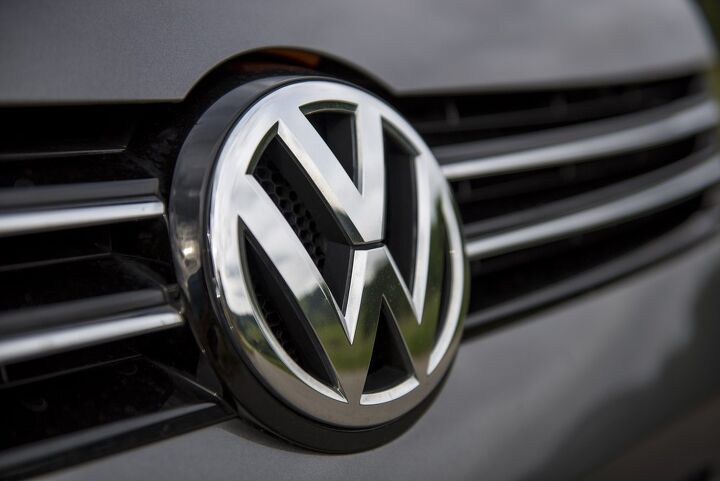


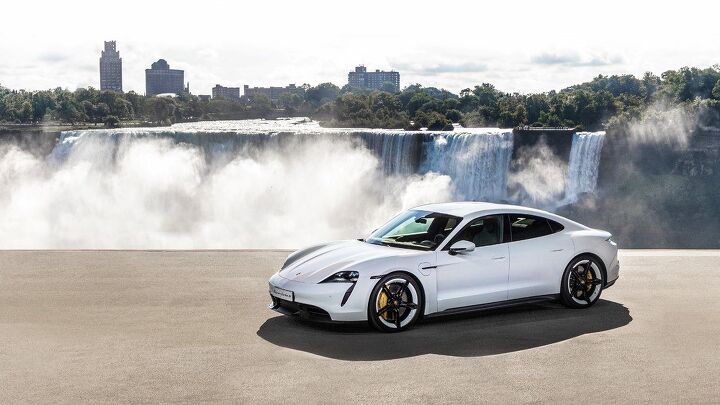
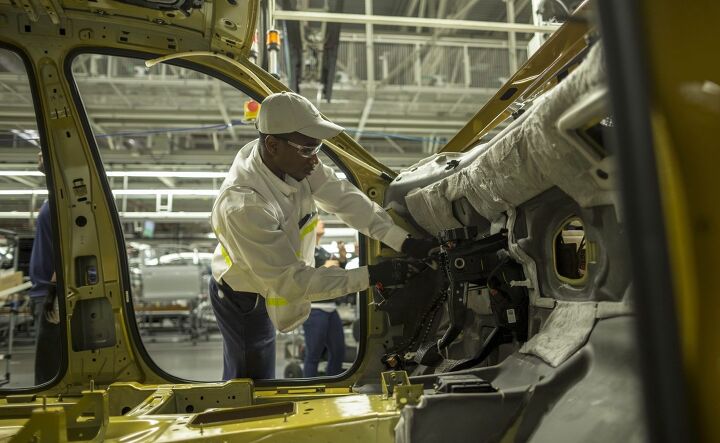



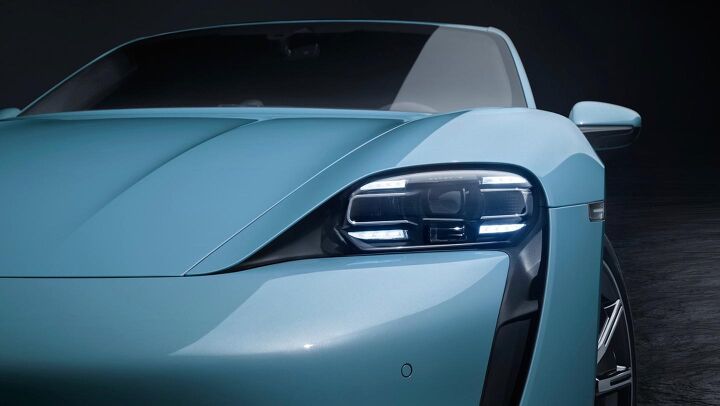
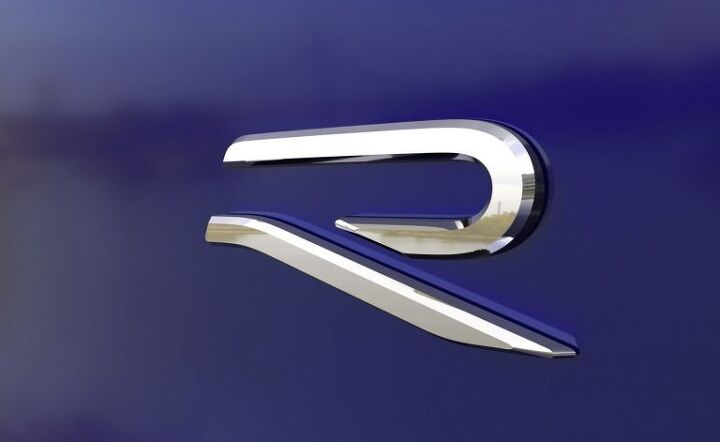














Recent Comments